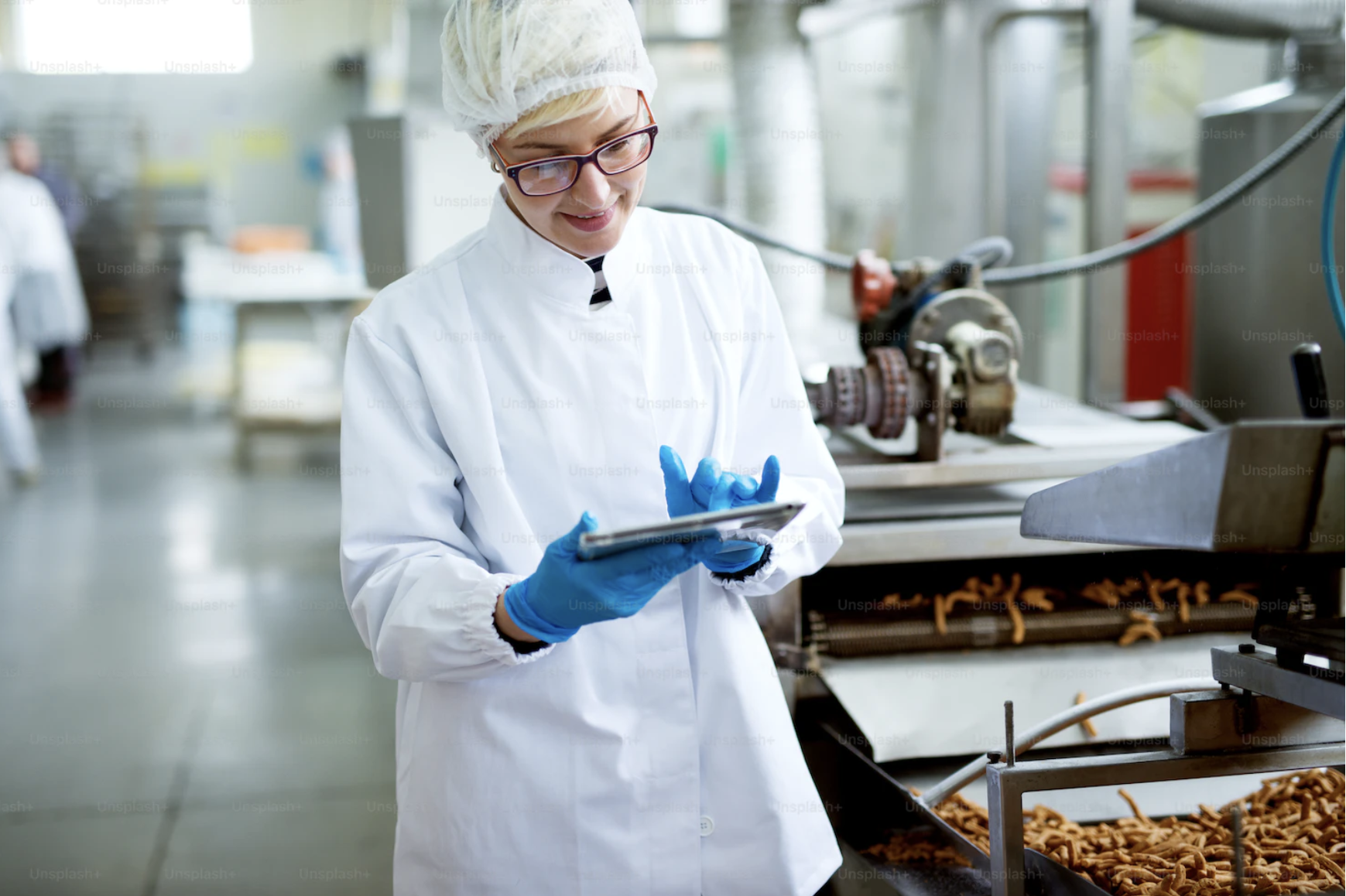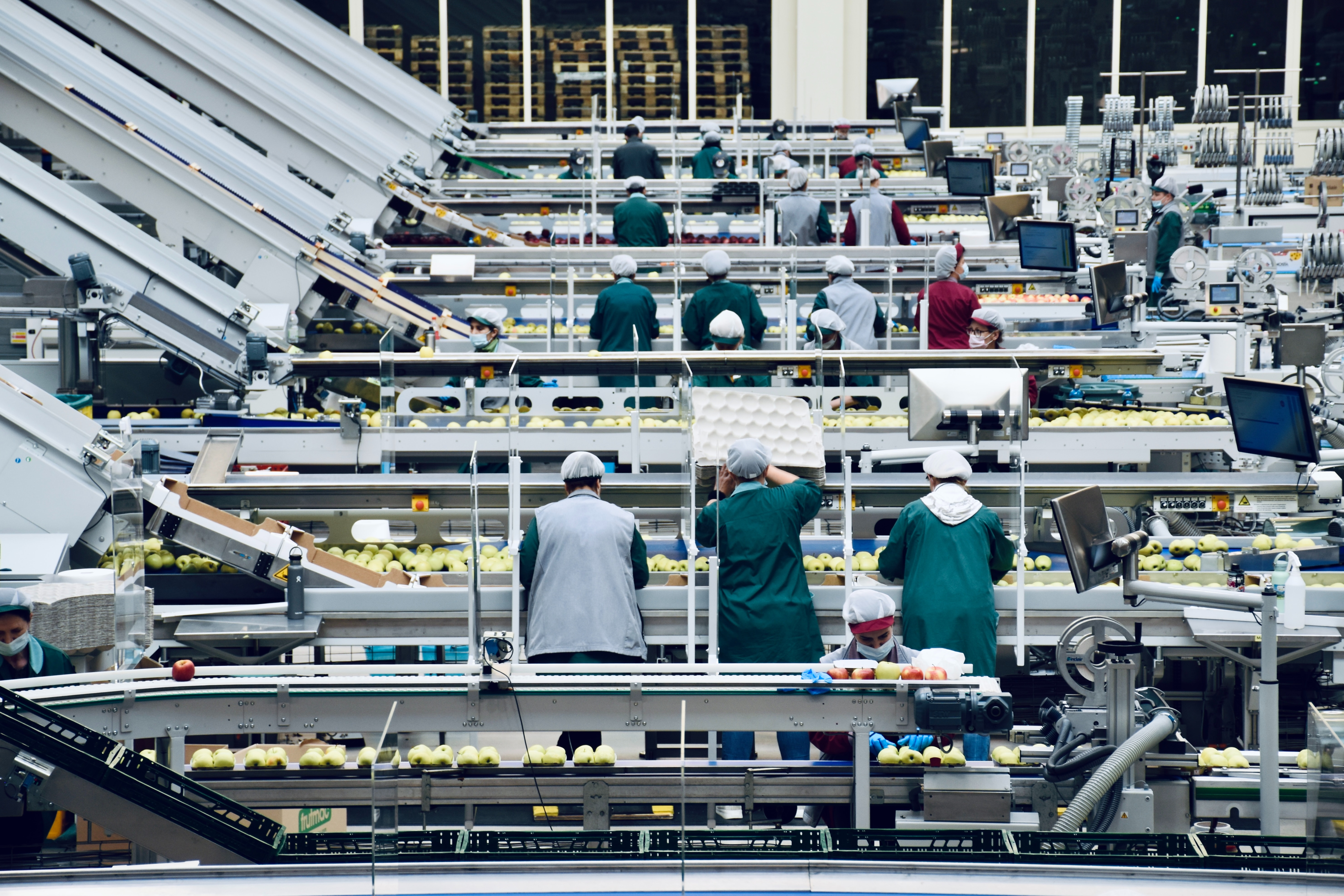AI and predictive technology – The future of food and beverage production
Today, artificial intelligence (AI) technology may be the most impactful entity in business. Companies across various sectors are employing this advanced technology to gather data that yields actionable insights, enabling informed business decisions. According to projections, more than 50% of companies are anticipated to implement AI in some form by the end of 2023, with AI expected to contribute to 45% of global economic gains by 2030. Maricha Ellis, global vice president of digital transformation at JBT, explores.
AI technology has been deployed in the food and beverage industry for years, and its usage will only escalate, becoming indispensable for manufacturers. As they strive to boost efficiency and throughput while minimising overall resource consumption, AI and predictive analysis technology can form the backbone of these efforts.
Here are four ways this revolutionary technology can assist food and beverage manufacturers in creating more robust, safer, efficient and sustainable systems to increase throughput and their bottom line.
Reduce waste
Sustainability is a paramount concern for both food and beverage processors and consumers, and is likely to remain a priority. An IDC industry report suggests that nearly 30% of food and beverage decision-makers consider consumer demand for eco-friendly products as their chief driver for organisational change toward enhanced sustainability. AI and predictive analytics empower manufacturers to operate sustainably and efficiently to meet customer demands.
One significant step towards sustainable operation is minimising food product waste during production. Globally, each year around 931 million tons of food are wasted, generating 3.3 gigatons of carbon dioxide annually. AI and predictive analytics’ vast potential to enhance food safety and product quality ensure proper manufacturing and waste reduction. Whether it is machines actively processing products or traceability systems identifying any issues in products as they journey through the supply chain, modern AI technology optimises food production processes, resulting in increased throughput and more sustainable production systems.
 Enable transparency
Enable transparency
Increasingly, manufacturers and processors are expected to be transparent with customers and stakeholders. This transparency is both ethically right and practically necessary, given our industry’s impact on billions of people worldwide. Many companies across the sector have acknowledged and prioritised transparency in their processes, finding AI and predictive technologies to be instrumental.
Many businesses communicate sustainability goals and product benefits directly to stakeholders. The expansive capabilities of AI technology facilitate effective and accurate reporting. This fortifies the sustainability efforts AI already bolsters within the production process.
Improve asset availability and safety
Among the most influential technologies in food and beverage today are predictive maintenance systems, which help manufacturers avoid interruptions and catastrophic failures related to maintenance. These AI-powered systems identify and analyse machine patterns throughout the production process, predicting potential failures. This prediction allows floor teams and engineers to rectify machine issues during planned production downtime, preventing disastrous consequences.
Not only does this boost production capacity and operational efficiency, but it’s also crucial for employee safety. 24% of food workers have been injured at their current job, and 17% were injured in their first year. Food manufacturing workers also have a 60% higher rate of occupational injury and illness than workers in other industries. Implementing AI and predictive technologies to predict and prevent machine failures creates safer and more conducive environments for these valuable employees.
 Mitigate labour challenges
Mitigate labour challenges
Nearly all industries, including food and beverage, have been grappling with labour shortages since the Covid-19 pandemic. Manufacturers have struggled to recruit and retain employees across their plants, significantly impacting their ability to meet consumer demand.
AI and predictive technologies enable manufacturers to produce more products with fewer employees. They also equip these employees with greater knowledge and intuition to produce superior products more efficiently and sustainably. AI will be instrumental in the automation journey for food processors. These systems also help to retain institutional knowledge and expertise, which can be harnessed and built upon by future generations.
Optimize energy usage
AI algorithms can analyze equipment energy consumption data and identify opportunities to streamline HVAC, refrigeration, lighting, and other systems. This allows processors to reduce energy waste, lower costs, and meet sustainability goals. Smart sensors with AI can track usage patterns and adjust equipment in real-time as needed.
Enhance sanitation processes
Machine learning models can monitor hygiene metrics like surface temperatures, water purity, and cleaning chemical concentrations. The models can spot anomalies, trigger alerts for human review, and even automatically adjust cleaning cycles. This helps processors avoid contamination risks.
Improve maintenance workflows
AI-enabled computer vision can automatically scan equipment and detect potential defects or damage. This allows issues to be addressed proactively before they cause downtime. AI can also optimize maintenance routes and technician schedules to maximize efficiency.
The impact and opportunities presented by AI and predictive technology cannot be overstated. Now is the time for manufacturers and processors across the food and beverage sector to effectively utilise these innovative systems to create better workplaces, systems, products, and business strategies. These technologies offer companies the capabilities to achieve these improvements. AI delivers unmatched visibility into food production assets and processes. It enables intelligent automation that is flexible, efficient, and waste-free. Companies that leverage AI will gain a competitive advantage in product quality, sustainability, and customer satisfaction. With an innovative partner, processors can tap into AI’s full potential while maintaining safety and ethics.
